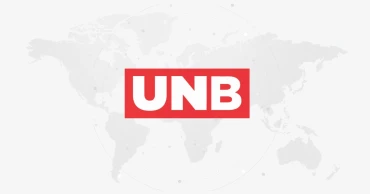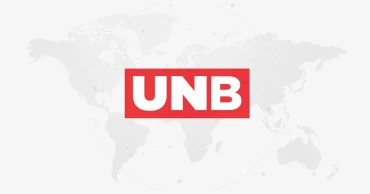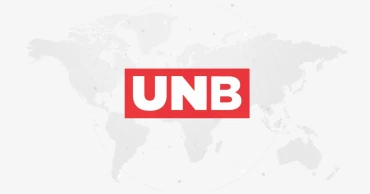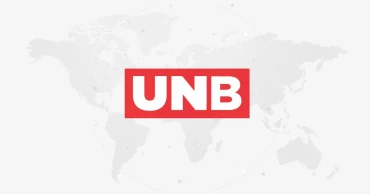blue economy
Regional dialogue on sustainable blue economy, connectivity begins in Dhaka
A two-day regional dialogue titled "Northeast Indian Ocean Regional Dialogue on Sustainable Blue Economy, connectivity, and resilience" officially commenced today (January 13), at a hotel in Dhaka.
The high-level event brings together senior policymakers, maritime experts, and development partners from Bangladesh, India (Andaman & Nicobar Islands), Sri Lanka, and the Maldives. Jointly organized by the Sasakawa Peace Foundation (Japan), the Moheshkhali Integrated Development Authority (MIDA), and Peace and Policy Solutions (Bangladesh), the dialogue aims to establish a unified roadmap for ocean-based economic growth.
The primary objective of the summit is to draft the “Dhaka Statement,” a shared regional position that will serve as a strategic guide for upcoming inter-regional and global dialogues.
Professor Mitsutaku Makino, President of the Ocean Policy Research Institute (OPRI) at the Sasakawa Peace Foundation, emphasized the strategic importance of the Indian Ocean as a "Great Middle Bay" connecting three billion people.
He noted that for Japan, the region is a critical maritime corridor that facilitates nearly 78 percent of its energy imports.
Speaking as the Chief Guest, Ashik Chowdhury (Chowdhury Ashik Mahmud Bin Harun), Executive Chairman of MIDA, BIDA, and BEZA, highlighted the untapped potential of the Bay of Bengal.
Experts call for national coordinating authority to develop blue economy
"The Bay of Bengal is the world’s largest bay, where resources, commerce, and connectivity converge," Chowdhury said. "For Bangladesh to harness its full maritime potential, we must elevate our actions and forge robust partnerships."
He announced that MIDA will collaborate with the Sasakawa Peace Foundation to implement modern maritime strategies across 20 government ministries and departments.
1 month ago
Sea will be our ‘highway’ to world: Prof Yunus
Highlighting the importance of greater connectivity, Chief Adviser Prof Muhammad Yunus on Wednesday laid emphasis on working with the vision of building a blue economy, not just a deep sea port.
“The area will not only be a facilitating zone, but a new city will be born there. From there, we will have international connectivity. The sea will be our ‘highway’ to the world,” he said.
Prof Yunus made the remarks when the members of Moheshkhali–Matarbari Integrated Development Authority (MIDA) met him at the state guesthouse Jamuna.
MIDA Chairman Chowdhury Ashik Mahmud Bin Harun, its members and SDGs Affairs Principal Coordinator Lamiya Morshed were also present.
MIDA to transform Moheshkhali-Matarbari into Bangladesh’s next commercial hub: CA’s Press Wing
The Chief Adviser put special emphasis on research on the deep sea, building an international standard training facility in the Moheshkhali region.
He also suggested taking advice and cooperation from the global experts, if necessary, according to the Chief Adviser’s press wing.
"We have never entered the world of sea, didn't even think about that. There is no research or findings on this. We need to find out what research is available on this, research papers from other countries that match with ours, and do our own research. For this, we need institutions. We need to build academia and organise an international conference on ocean economy,” Prof Yunus said.
The Chief Adviser also emphasised environmental conservation and discussed setting up an eco-tourism park.
“We need to plan and see the current state of the forest and in which state we want the forest to be in in the future,” he said.
The MIDA chairman made a presentation on the Moheshkhali-Matarbari project at the meeting where Ashik presented MIDA's work plan for the next four months.
Ashik said the project will be completed in three phases - the first phase from 2025 to 2030, the second phase from 2030 to 2045, and the third phase from 2045 to 2055.
Chinese investors show strong interest in Bangladesh’s key sectors: BIDA
“If the project is implemented, it will provide direct and indirect employment to about 2.5 million people and add US$ 150 billion to the GDP,” he said.
6 months ago
Experts call for national coordinating authority to develop blue economy
Experts have suggested the formation of a national coordinating authority as a one-stop centre for Blue and Ocean Economic Development in the country.
They also stressed the need for stronger governance, international investment, and efficient financial management to unlock the sector's potential.
Ctg port must emerge as best with international standard facilities to help grow economy
The recommendation came during a two-day webinar titled “Blue Economy in Bangladesh: Investment Possibilities for a Sustainable Economy in the New World Order”, held on May 13–14.
The International Research Center of SIMEC Institute of Technology and the Centre for International Development, Social Entrepreneurship, and Leadership (CIDSEL) at the University of the Sunshine Coast, Australia jointly organised the programme, said a press release.
Tami Harriot and Anupam Ejaz from CIDSEL, Australia, contributed to the discussions as co-organisers, while Dr Sariful Islam, Coordinator of the International Research Center at SIMEC Institute of Technology, moderated the sessions. Dr Md Shariful Islam, Associate Professor in the Department of International Relations at Rajshahi University, delivered the valedictory speech.
On the first day of the webinar, discussions focused on the investment opportunities and financial management of the Blue Economy in Bangladesh.
The second day highlighted the key actors and factors influencing Bangladesh’s Blue Economy, as well as the critical importance of ocean health and sustainable development.
A key takeaway from the discussions was the pressing need for a unified national authority to oversee and coordinate all Blue Economy-related activities in Bangladesh.
The role of BIDA and other Blue Economy Cells within ministries should be coordinated for better outcomes, the speakers said.
The fellows will prepare a comprehensive policy brief for the sustainable development of the Blue Economy in Bangladesh and submit it to the government and relevant authorities.
The webinar was part of a post-course activity under the Australia Awards Fellowship programme, which focuses on improving research and policy in Bangladesh’s Blue Economy.
The programme is funded by the Department of Foreign Affairs and Trade (DFAT), Australia.
Government officials, researchers, academics, NGO representatives, scholars, and journalists with expertise in Bangladesh's Blue Economy participated in the webinar.
Key participants included Dr Sanwar Jahan Bhuiyan, Secretary of Bangladesh Public Service Commission; Dr SM Shameem Reza, Professor in the Department of Mass Communication and Journalism at Dhaka University; Ms Foara Yasmin, Executive Director of SIMEC Group; Dr Ratan Kumar Roy, Director of SIMEC Institute of Technology; Dr Moazzem Hossain, Retd Additional Secretary; Abdullah Al Maher, Group CEO and Head of Business at IDS Group, among others.
Bangladesh’s recycling economy: Turning trash into treasure for thousands
9 months ago
Coast Guard to be stronger for boosting blue economy, security: PM
Prime Minister Sheikh Hasina on Monday said the government has adopted a plan to increase the number of ships, equipment and manpower for Coast Guard as per the Vision 2030 and Vision 2041 modernisation plans for ensuring blue economy and security at sea.
“Procurement of four more OPVs, nine replacement vessels, two maritime version helicopters for deep sea patrols has been approved,” she said.
The Prime Minister said this while speaking at the 28th founding anniversary of the Bangladesh Coast Guard and Medal Giving Ceremony held at the city's Sher-e-Bangla Nagar.
In order to modernise and strengthen the Bangladesh Coast Guard, the Prime Minister said that advanced technology ships, maritime surveillance systems, hovercrafts and high-speed boats are going to be added to this force very soon.
She mentioned that an initiative has also been taken to establish a digital connection with Bangabandhu Satellite-1 to bring about a revolutionary change in the communication system of the Bangladesh Coast Guard in the deep sea.
Also Read: Help people in villages in cultivation activities: PM to Ansar and VDP
Hasina said that in continuation of this, from 2009 to 2022, various types of infrastructures including Coastal Crisis Management Centres have been built at Coast Guard stations and outposts in coastal and remote areas of the country to make the Coast Guard skilled and stronger.
She also said that vessels of various sizes have been constructed.
“Under various development projects, accommodation, barracks and administrative buildings have been constructed in the zones of the Coast Guard,” she said.
The Prime Minister mentioned that training capacity of the Coast Guard manpower was also enhanced by setting up its own training base in Patuakhali, named BCG Base Agrajatra'.
She said inshore patrol vessels, floating cranes, tug boats and various types of high speed boats have been developed for the Bangladesh Coast Guard under various developmental projects.
“Combat uniforms have recently been introduced for the force, which I believe will help boost morale for all members.”
Hasina said that a dockyard is being constructed at Gajaria in Munshiganj district to increase the repair and maintenance capacity of this force.
Read More: Sustainable Development: Separate ministry for blue economy proposed
She said that Coast Guard has been playing a special role in the economic development of the country by ensuring the proper use of marine resources in Bangladesh waters.
In this connection, she said that the motto of this force is ‘Guardians at the Sea’. The meaning of this is to establish it as a true friend of the people in the sea and coastal areas.
The Prime Minister said that Bangladesh Coast Guard has already shown itself as a true friend to the innocent and oppressed people in the coastal areas of the country by preventing wrongdoing and misdeeds.
She said that every member of this force is now strong in the spirit of patriotism and liberation war.
She also mentioned that members of Coast Guard are working tirelessly for the interests of the country when risks are there.
She said that this force gives security for the sea ports, prevent drug smuggling, arms smuggling, human-trafficking, illegal and unregulated fishing, control and prevention of sea and river pollution and piracy.
Earlier, the Prime Minister handed over the medals to Coast Guard members for their bravery and special achievements.
Read more: Blue Economy: Dhaka calls for joint efforts to harness marine resources
A video documentary on the activities of the Coast Guard was screened on the occasion.
She witnessed a colourful cultural programmes and planted a tree sapling.
Earlier, the Prime Minister inaugurated the newly constructed Laxmipur Coast Guard Station through unveiling its plaque virtually from the coast guard headquarters end.
At the function, the Prime Minister also handed over Bangladesh Coast Guard Medal, President Coast Guard Medal, Bangladesh Coast Guard Medal Sheba and President Coast Guard Medal Sheba among selected members of the Coast Guard including its Director General Rear Admiral Ashraful Haque Chowdhury.
Read More: Blue Economy Dev: Govt to take project on Tuna, similar pelagic fishing in deep Sea
3 years ago
Tanzania for signing agreement with Bangladesh for blue economy cooperation
Tanzania's Blue Economy and Fisheries Minister Suleiman Masoud Makame has said his country is interested in establish cooperation with Bangladesh in the blue economy by signing an agreement after Bangladesh Foreign Minister AK Abdul Momen suggested that both countries sign a memorandum of understanding (MoU) on the area.
Tanzania is particularly interested in aquaculture and deep-sea fisheries, he added.
Momen met Suleiman on the sidelines of the Indian Ocean Rim Association (IORA) conference in Dhaka Wednesday.
Suleiman was accompanied by the principal secretary of his ministry. Momen was accompanied by the secretary (east) and other officials of the foreign ministry.
Thanking Suleiman for joining the Council of Ministers (COM) meeting, Momen said Bangladesh has attained remarkable achievements in agriculture, including fisheries, health and other socio-economic areas.
Read more: IORA ministers meet Thursday, Momen for making the best use of sea
He proposed that Bangladesh and Tanzania work together to achieve food security.
Suleiman said Tanzania would offer contract farming opportunities to Bangladesh entrepreneurs.
The Tanzanian minister also proposed that Bangladesh can share the ecotourism experience of Tanzania.
Momen invited Tanzanian entrepreneurs to invest in Bangladesh's economic zones. He suggested that there may also be cooperation in the IT sector.
The foreign minister sought the support of the Tanzanian government on the Rohingya issue as well as in different elections where Bangladesh would have candidature.
Read more: Bangladesh, Tanzania keen to work on blue economy, agriculture
3 years ago
Bangladesh urges Indian Ocean nations to work together to promote blue economy
Foreign Minister AK Abdul Momen on Sunday called for developing a cooperative mechanism among the littoral states of the Indian Ocean to promote collaboration for reaping maximum benefits of the blue economy.
"Bangladesh believes that the regional vision for the blue economy must be supported by a balanced integration of the economic, social and environmental elements of development," he told the IORA (Indian Ocean Rim Association) Business Forum Leadership Summit at a city hotel.
Read more: Russian Ambassador instead of FM to represent the country in IORA meeting
Momen said optimal use of the marine resources – categorized as blue economy- has been recognized as one of the key components of sustainable development.
Bangladesh, he said, considers blue economy as one of the cornerstones of its economic growth and socio-economic development.
Chairman of the Indian Ocean Rim Business Forum Sheikh Fazle Fahim and Secretary-General IORA Ambassador Salman Al Farisi also spoke.
Bangladesh, as the current chair of IORA, is going to host the 22nd Meeting of the Council of Ministers (COM) under the theme “Harnessing the opportunities of the Indian Ocean sustainably for inclusive development” on November 24.
"I believe the council will definitely take note of the suggestions of this business forum regarding the recovery from the impact of pandemic," Momen said.
Read more: IORA meeting to be successful with more avenues of cooperation: Shahriar
He said there is a need for a sustained dialogue among business leaders, scholars, practitioners and policy makers to identify and deliberate on various economic challenges confronting the region, identify mechanisms to address those and evolve new frameworks for co-operation with the regional countries.
IORA has evolved into an important regional group spanning the Indian Ocean through sustained dialogue and cooperation and now is playing as a key driving force to ensure development, peace and stability in the region, Momen said.
3 years ago
Bangladesh, Kenya to partner in farming, air connectivity, blue economy
Bangladesh and Kenya have agreed to develop cooperation in contract farming, air connectivity, blue economy and food security.
The countries also want to strengthen cooperation between their investment authorities apart from exploring opportunities in technical exchanges, education sector and youth cooperation.
A 10-member delegation led by Moi Lemoshira, additional secretary of the Ministry of Foreign Affairs of Kenya, joined the first foreign office consultations with the Ministry of Foreign Affairs (MoFA), Bangladesh on Sunday.
The delegation will also have meetings with government agencies and apex chambers and visit export processing zones and manufacturing industries in Bangladesh. It comprises the additional secretary of the foreign ministry, the high commissioner of Kenya in New Delhi and other officials of the Kenyan government.
Read: Bangladesh, Kenya sign 2 MoUs
The consultations held at the Foreign Service Academy were presided over by Mashfee Binte Shams, secretary (east) of MoFA, and Lemoshira.
During the foreign office consultations, Lemoshira mentioned that the consultations will help identify new areas of cooperation and strengthen the existing relations.
He said apart from diplomatic ties, the necessities of augmenting relations in trade and economic areas are being increasingly felt.
Mashfee Binte Shams said there may be exchanges of knowledge and training in agriculture, IT, women empowerment and UN peacekeeping. She also highlighted the importance of the exchange of trade delegations.
The Kenyan side expressed interest to initiate cooperation between the foreign service academies of the two countries. Lemoshira emphasised establishing joint economic cooperation and signing joint trade agreements.
Both sides also pledged to continue cooperation at bilateral and multilateral platforms like the UN, the Commonwealth and the Indian Ocean Rim Association.
At the end of the meeting, Foreign Secretary Masud Bin Momen and Lemoshira signed agreements on bilateral political consultations and cooperation between foreign service academies.
3 years ago
Sustainable Development: Separate ministry for blue economy proposed
State Minister for Planning Dr Shamsul Alam has proposed to establish a separate ministry for the blue economy or a separate division under the Ministry of Science and Technology.
He emphasized on the contribution of the blue economy to Bangladesh’s future sustainable development endeavors.
While speaking as the chief guest at a seminar, the State Minister emphasized on two specific issues for the sustainable development and proper utilization of the blue economy - resource exploration and resource exploitation.
He also highlighted the importance of knowledge mobilization and conducting research on the subject matter.
Bangladesh Institute of International and Strategic Studies (BIISS) organized the hybrid seminar on “Blue Economy and Maritime Security: Bangladesh Perspective” on Thursday.
Secretary, Maritime Affairs Unit, Ministry of Foreign Affairs Rear Admiral (Retd) Md. Khurshed Alam attended the seminar as a special guest.
BIISS Chairman Kazi Imtiaz Hossain chaired the inaugural session while its Director General Major General Mohammad Maksudur Rahman delivered the welcome remarks.
The BIISS DG emphasized on creating a blue economy belt to utilize the huge untapped resources of the vast area of the sea.
Kazi Imtiaz Hossai stressed ensuring maritime security and harnessing the potential of the blue economy.
Secretary Khurshed Alam highlighted the potential of marine resources in the country’s economy along with some of the challenges.
In the working session, four presentations were made. Dr. Abul Kalam Azad, Professor of International Relations, Jahangirnagar University, made a presentation on “Blue Economy and Ocean Governance: Bangladesh Perspective”.
Read: Bangladesh’s Blue Economy Cell falters; no progress in 4 yrs
A presentation titled “Maritime Security and Strategy in the Bay of Bengal” was made by Professor Dr Delwar Hossain, Department of International Relations, University of Dhaka, and Member, Bangladesh Public Service Commission.
Moutusi Islam, BIISS Research Fellow made a presentation on “Nexus between Maritime Security and Blue Economy: Implications for Bangladesh in Post-Covid Era”.
A presentation titled “Bangladesh’s Economic Prospect in the Bay of Bengal” was made by Dr Mahfuz Kabir, BIISS Research Director.
The working session was chaired by Ambassador M Humayun Kabir, President, Bangladesh Enterprise Institute (BEI).
Senior officials from different ministries, ambassadors and high commissioners, senior civil and military officials, media, academia, think tanks, business personalities, students and teachers from different universities participated in the open session.
They stressed the importance of the blue economy and marine resources to the country’s economy and future development endeavors.
They also highlighted different issues of maritime security in the context of Bangladesh.
3 years ago
Set up separate ministry or separate division for blue economy: Shamsul Alam
State Minister for Planning Shamsul Alam Thursday called for setting up a separate ministry or a separate division under the Ministry of Science and Technology to ensure proper use of the blue economy through resource exploration and resource exploitation.
He was addressing the hybrid seminar "Blue Economy and Maritime Security: Bangladesh Perspective" organised by the Bangladesh Institute of International and Strategic Studies (BIISS).
The state minister emphasised the contribution of the blue economy to Bangladesh's future sustainable development efforts. He also highlighted the importance of knowledge mobilisation and conducting research on the area.
Major General Mohammad Maksudur Rahman, director general of BIISS, emphasised creating a blue economy belt to use the huge untapped resources of the vast area of the sea.
Rear Admiral Md Khurshed Alam (retired), secretary at the Maritime Affairs Unit of the Ministry of Foreign Affairs, attended the seminar as a special guest.
Ambassador Kazi Imtiaz Hossain, chairman of BIISS, chaired the inaugural session.
Dhaka University Professor Delwar Hossain, Jahangirnagar University Professor Abul Kalam Azad, BIISS Research Director Mahfuz Kabir, and Research Fellow Moutusi Islam also spoke at the seminar.
3 years ago
Blue Economy: Dhaka calls for joint efforts to harness marine resources
Bangladesh has sought a joint blue economy approach to harness the untapped marine resources that can be useful in tackling poverty, food insecurity, unemployment, energy crisis and ecological imbalances towards strengthening the sustainable development process.
“Oceans are the potential and versatile resource-frontiers for humankind, but remains under-explored and unexploited,” said secretary of the Maritime Affairs Unit at the Ministry of Foreign Affairs Rear Admiral (Retd.) Md. Khurshed Alam.
Bangladesh along with some other countries co-hosted the event titled “Fostering international and regional cooperation in support of the sustainable development of the blue economy in LDCs, LLDCs and SIDS” organised by the International Seabed Authority (ISA) on Wednesday on the sidelines of the 2nd UN Ocean Conference being held in Lisbon, Portugal.
Also read: Ecnec clears a Tk 1092-cr project to widen Cox’s Bazar Marine Drive
The vice-president of Tanzania, foreign and tourism minister of Tonga, minister of international development of Norway, ministers, high representatives and experts from the member states also attended the event, according to the Ministry of Foreign Affairs.
Khurshed emphasized the need of fostering international and regional cooperation to develop strategies in support of the sustainable development of the blue economy in LDCs, LLDCs and SIDS.
He elaborated that states and organizations in developing regions may not have the capacity to develop and manage their own shared marine resources, as they lack the necessary information, expertise or the financial capacity to follow through with planning and operations.
External assistance can be valuable, and sometimes essential, in establishing shared international marine resources arrangements, Khurshed said.
Also read: Blue Economy Dev: Govt to take project on Tuna, similar pelagic fishing in deep Sea
Panelists opined that regional and international cooperation is crucial to develop marine scientific knowledge and research capacity to leverage the benefits offered by the blue economy.
They said transfer of technology can create enabling conditions in the LDCs, LLDCs and SIDS states to participate effectively in existing and emerging ocean sectors of the blue economy. Representatives also viewed strongly that strategic partnership is necessary for harnessing the benefits of the blue economy.
The seminar was wrapped up with commitments to forging wider regional and international cooperation, devising mechanisms for technology transfer and financing the blue economy.
3 years ago









.jpg)






